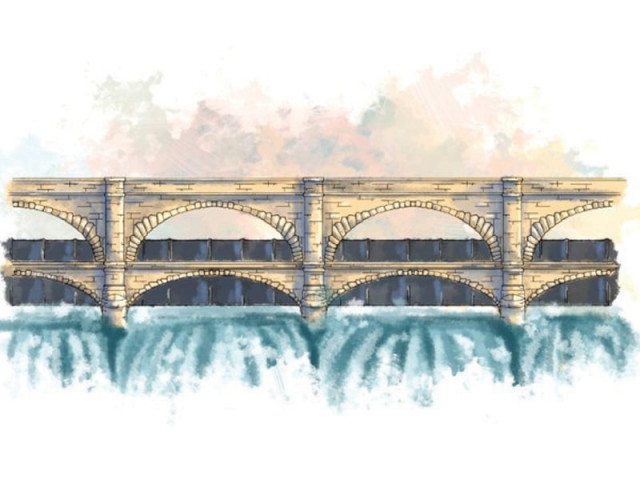Despite funding constraints, ECNEC approves 45 more projects
Delays, cost overruns in completion of entire development portfolio expected.

Presided over by Finance Minister Dr Abdul Hafeez Shaikh, the Executive Committee of the National Economic Council (Ecnec) gave the go-ahead to the projects – despite acknowledging that the existing portfolio will take another six years to reach completion due to shortage of funds.
According to officials, Ecnec had met to consider 49 new projects in total – worth almost Rs710.7 billion – but deferred four schemes valued at Rs29 billion due to issues with funding commitments.
The body approved 11 projects – with a total cost of Rs231.6 billion – in the transport and communication sector. Five schemes costing a total Rs11.9 billion were approved in the health sector; while two projects worth Rs16 billion were approved in the basic education sector. The body also approved the Mirpur and Muzaffarabad medical colleges. It approved one project each in the agriculture, industry and devolution sectors.
In the water sector, 12 projects worth Rs114.4 billion were approved; while nine projects valued at Rs171.2 billion were given the green signal in the energy sector. The government also sanctioned the World Bank-funded Tarbela Fourth Extension Project, which carries an estimated cost of Rs83.6 billion. The Rs9.3 billion Darwart Dam and Rs18 billion Naulong Dam projects were also okayed.
Ecnec gave its go-ahead to the procurement of high-capacity bogie wagons and high-speed power vans, which will cost the kitty Rs12 billion; and for the repair of 150 diesel electric locomotives, costing Rs5.1 billion. These projects will be part of the Rs11 billion Railways bailout package. The Ecnec also approved a pilot project for the mechanisation of track maintenance worth Rs4.1 billion.
The body has also cleared an important regional connectivity project for Khyber-Pakhtunkhwa for the construction of roads, which will cost Rs13 billion. For the widening of the M-4/N-70 route between flyovers at Double Phattak and Chowk Nag Shah in Multan, the government has set aside another Rs4.1 billion. A Rs2.3 billion project was also approved for the management of the Hill Torrent in Dear Ghazi Khan. The Punjab Irrigated Agriculture Productivity Improvement Project – worth Rs36 billion – was also approved, which will be funded by the World Bank.
Under the Balochistan package, the Ecnec has approved the building of 26 dams in Balochistan, which will cost Rs4.7 billion. The body has also approved Rs22.3 billion for a project that will connect a 1,200 megawatt Engro power plant with the National Transmission and Despatch Company. The National Gas Efficiency Project, which has been dormant for a while, was also approved with a total cost of Rs30.4 billion.
After approval of the new projects, the numbers of pending schemes has yet again increased to 1,139 – costing roughly Rs2.5 trillion – according to a Planning Commission official. Earlier, the government had slashed hundreds of schemes – effectively wasting funds and efforts put into them – in order to bring costs down below Rs1.8 trillion.
In a testimony to the Senate Standing Committee on Finance and Planning, Planning Commission Deputy Chairman Dr Nadeemul Haque had admitted earlier this week that the existing financial crunch demanded that no new projects be approved for the next six years if ongoing schemes are to be sustained.
The Ecnec’s decision also goes against earlier directives given by Prime Minister Raja Pervez Ashraf. The premier had directed the Planning Commission and the finance ministry to cut funding for projects in which less than 40% progress had been made, and instead divert resources to schemes closer to completion.
Published in The Express Tribune, August 17th, 2012.



















COMMENTS
Comments are moderated and generally will be posted if they are on-topic and not abusive.
For more information, please see our Comments FAQ